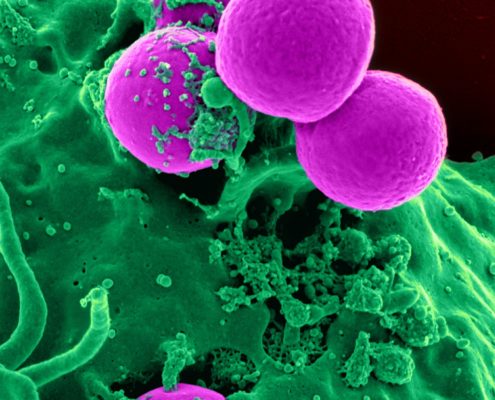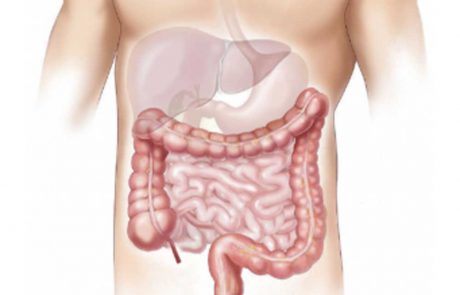Mast Cell Activation Syndrome
A Possible Answer for All Your Random Symptoms
You visit your doctor because you have been experiencing anxiety, depression but with that also some random symptoms such as ringing in the ears, sore throat, joint pain and headaches. And to make it even more confusing, your symptoms may fluctuate. Blood work looks normal and so you either get a prescription for a psychiatric medication or a referral to a psychiatrist.
Unfortunately, your primary care doctor and your psychiatrist may not even have Mast Cell Activation Syndrome (MCAS) on their radar.
While this condition is still not very well known it is suspected that more people suffer from MCAS that we realize. Many people suffer with this condition for years before finally getting the correct diagnosis. In fact, it was only recognized as a disorder in 2007.
One theory as to the rise of MCAS is due to the increase in toxins we are exposed to on a daily basis such as mold, environmental toxins and chemicals. We are exposed to these toxins via air, on our food, in our products we use in our house, put on our skin and so forth. While some people may not have reactions to this barrage of daily toxins other can be more sensitive to them.
What Mast Cells Are and What Can Go Wrong
Mast cells, a type of immune cell, is vitally important in protecting you from all these foreign toxins. In fact, you wouldn’t even heal from a wound if you didn’t have Mast cells!
Mast cells (type of WBC) will trigger the release of histamine. They are WBC that are part of the immune system and function as a bridge between the immune and nervous system, acting to coordinate the two. The primary function is to defend against toxins and infectious agents.
Mast cells are made in the bone marrow and while other WBC such as basophils circulate in the blood, Mast cells circulate in the tissues, primarily in the connective and mucosal tissues near blood vessels and nerves of the skin, GI, respiratory and genitourinary tracts and in the brain.
Think of your Mast cells as maintaining homeostasis and balance in the body. They need to interact with the outside world and thus are exposed to infections and toxins.
They are your part of your first line of defense when responding to an injury or to a foreign pathogen such as a virus, parasite, fungi or toxin.
Mast cells are filled with vesicles called granules that contain more than 200 different biochemical signalers. When a toxin or infectious agent is introduced, a person with a well- functioning immune system will mobilize their mast cells to orchestrate a measured response. The mast cells release their biochemical mediators most prominently histamine, serotonin and tryptase to neutralize the danger.
If the person’s immune system is dysregulated or hyper aroused the mast cells can become overreactive and instead of releasing their biochemical mediators in a self-limited way they become disorganized and degranulate chaotically causing a wide array of symptoms. This is because over time the chronic inflammation can damage cells and if the inflammation is not addressed, it can impact every organ in the body, hence the reason often times for such random signs and symptoms.
MCAS and Gut Issues
Gut issues often go hand in hand with MCAS and it is thought that MCAS can lead to a secondary dysbiosis condition (not the other way around). Unfortunately, enough research on this area has not been done yet. Typically, if traced back long enough, most of those suffering will have MCAS signs and symptoms before the gut dysbiosis symptoms of gas, bloat, GERD, etc. However, this still does not prove anything and is just an observation at this point in time.
Gastroparesis is a common finding among those with MCAS. There are no studies yet to prove that MCAS causes gastroparesis however some in the medical profession do believe that MCAS does cause, whether directly or indirectly, gastroparesis.
Signs and Symptoms of MCAS
Symptoms of MCAS can fall into several different categories (Skin, GI, Cardiovascular, respiratory and brain). Thus, you may have hives, nausea, low blood pressure and fainting, along with asthma, anxiety and headaches. All can seem very random and unrelated and difficult for one to piece together as one root cause for all of them!
- Severe itching, hives, flushing, swelling of the skin
- Migraines
- Frequent nausea
- Frequent diarrhea
- Allergic reaction to certain foods, meds, chemicals, insect bites,
- Chronic congestion, increase in mucus production, asthma, cough,
- Shortness of breath, feeling like you cannot take a deep breath
- Muscle cramping, abdominal cramping
- Feeling cold
- Sweating, esp. at night
- Hair loss
- Dry eyes
- Pink eye
- Canker sores
- Dental decay
- Heart palpitations
- Inability to concentrate
- Brain fog
- Anxiety
- Depression
- Insomnia
- Worsening of symptoms after a vaccine
- Fainting, vertigo, feeling off balance
- Ringing in ears
- Sensitive to touch, smell, light, sound, smells, foods, EMF’s
- Swollen lymph glands
- Localized pain in joints, tendons, bones or muscles
Identify Your Trigger
- Food sensitivity
- Chemical sensitivity (medication, colorings, dyes, aspartame, cleaning products)
- Mold spores,
- Extreme heat or extreme cold
- Vigorous exercise
- Stress
- Trauma
- Ultraviolet light
- Extreme fatigue
- Hormonal imbalances
- Emotional stress
- Pollens
- Perfumes, chemical odors, pet danger, pollution
- mold
- Foods high in histamine
- Medications such as narcotics, opioids, NSAIDS, muscle relaxers, some supplements, antibiotics, anesthetics, contrast dyes and all be triggers that can throw malfunctioning mast cells into overdrive
Some Conditions That MAY Be Related/Caused By MCAS
Note that the issues on this list can and often do have other root causes other than MCAS
- Psoriasis
- Eczema
- Other skin issues
- IBS
- SIBO
- Interstitial cystitis
- Asthma
- Migraines
- Depression
- Anxiety
- ADHD
- OCD
- AI disorders such as lupus, Hashimoto’s, MS, diabetes, RA, fibromyalgia,
- POTS
- GERD
- Autism
- EDS
- Celiac
- CFS
- Chemical sensitivity
The Relationship with Histamine
Most of us think of histamine and a histamine reaction in response to seasonal allergies. This is why many take medications that are histamine blockers to reduce the itchy eyes, sneezing and sinus congestion that comes with exposure to pollens that you are allergic to.
Histamine is a neurotransmitter (NT), that facilitates communication between neurons throughout the nervous system. Histamine levels in the body control sleep and wake cycle, impact metabolism, thyroid function, reproduction and the management of stress. It can also increase the permeability of the BBB (blood brain barrier).
If you have a histamine intolerance you may lack sufficient levels of the daime oxidase (DAO) gut enzyme and histamine N-methyltransferase (HNMT) a liver enzyme which break down and detoxify histamine that is present in food, medications and alcohol. When your enzymes are functioning properly, you have no concerns with clearing histamine from the body.
But histamine intolerance is somewhat different than MCAS. And to make it even more confusing, you can have one or the other or both! The main difference is that with histamine intolerance, it is the triggering of high histamine levels in the blood that cannot be easily detoxified because you are lacking in the enzyme activity. With MCAS it involves also dysregulated mast cells releasing not only histamine but several other inflammatory mediators in the tissues of the body.
MCAS can be difficult to diagnose and so can histamine intolerance. If you think you have a histamine intolerance, you can start off first by consuming a low histamine diet, avoid alcohol and any medications that block DAO or HNMT enzyme activity. You can also supplement with a DAO supplement that will help to break down histamine. If an antihistamine OTC remedy helps you to feel better you may want to consider histamine intolerance and/or MCAS as a possible root cause that may need further investigating.
Steps You Can Take
- Work with a functional health professional who has some knowledge of MCAS
- Try going gluten and dairy free for 30-90 days
- Avoid high histamine foods (eat a low histamine food diet for 30-90 days and note if there is any improvement). (see the list below of high histamine foods and avoid these foods)
- Add in a DAO supplement
- Identify any triggers-medications, aspartame, dyes and colorings in food and beverages
- Is there any on-going mold exposure (often there is unsuspected mold in your house, place or work or school-not everyone will react to mold!) Mold can be hidden behind walls and go unseen. You may need to get a specialist in to detect if there is mold present. There are also tests to see if you are reacting to mold.
- Address gut health with a gut healing protocol once diet has been modified
- IF you suspect Lyme disease, get tested
- Avoid cipro and fluroquinolone drugs with EDS and hypermobility d/t tendon and ligament tears that can happen from this drug
- Stress activates mast cells (uses stress reduction techniques, take herbal and supplement support for stress and anxiety)
- Colonoscopy: if feel worse after, it can be MCAS b/c these people are reactive to the chemicals used in endoscopy
- Try taking quercetin and rutin, both Flavonoids, to inhibit histamine release
Consume a Low Histamine Diet
Histamine Releasing Foods (naturally high in histamine that you should avoid.)
- ALL Shellfish
- Nuts (walnuts, pecans)
- Black and green tea
- Spinach
- Avocado
- Eggplant
- Vinegar
- Mustard
- Olives and pickles
- Some fruits-citrus, strawberries, cherries, raspberries, banana, pineapple and dried fruits
- Some spices-cinnamon, clove, anise, curry, cayenne, nutmeg
- Foods that contain yeast and yeast extracts (this means most bread type products)
- Food dyes
- White and sweet potato
Histamine Rich foods (produce histamine as they are prepared) To Avoid
- Left- overs especially leftover meats
- Aged cheeses
- All Fermented foods
- Fish
- Cured meats such as deli meats, bacon, pepperoni, hot dogs, sausage
- Tomato, ketchup
- Chocolate
DAO Enzyme blocking Foods to Avoid
- Alcohol
- Energy drinks
- Tea-black, green and mate
DNRS/ Dynamic Neural Retraining System
This can be effective for addressing MCAS and it takes a different approach versus diet, supplements and possibly medication.
I think if you suspect MCAS or have been diagnosed with this, it is very worthwhile to explore. What DNRS does, is to address the hyperarousal of the nervous system. It combines components of cognitive behavioral therapy, mindfulness based cognitive restructuring, emotional restructuring therapy, neural linguistic programming, incremental training and behavior modification therapy to rewire nueral circuits in the limbic system which calms the hyperactive stress response.
DNRS was started by Annie Hopper and her book, found on amazon is titled “Wired For Healing-Remapping the brain to recover from Chronic Mysterious Illnesses.” Her training program can be found at www.retrainingthebrain.com. Based on her website, you need to devote time to learning how the program works and then commit to one hour per day for 6 months to perform the exercises.
Another well-known DNRS program is Dr Gupta’s which can be found at www.guptaprogram.com. From what I am told, Dr. Gupta’s program may be better suited for those with type A personality and who may have difficulty committing one hour per day for 6 months.
Testing
Diagnosing MCAS is not easy. It can include blood, urine or skin testing or less frequently, bone marrow biopsy. Most medical doctors are not familiar with MCAS so you may have to bring it up to him or her. Functional medicine doctors and naturopaths seem to be more familiar with this syndrome.
Testing may include after taking a full history and asking about signs and symptoms, a serum tryptase test, and looking at genetic snps for DAO and HNMT.
Bottom Line
Many doctors are not informed on what MCAS even is. What further complicates making a correct diagnosis (by a medical professional) is that MCAS can look so unique from one person to the next and symptoms can vary greatly.
Some can benefit from taking antihistamine supplementation and following a low histamine diet and addressing your triggers while others may need some medication.
At this time MCAS does not have a cure but it can be managed, and you don’t have to live with the many random symptoms to are part of this syndrome.
Sources
https://bioindividualnutrition.com/when-histamine-goes-haywire/
https://drruscio.com/mcas-tick-borne-illness/
https://www.draniadempsey.com/singe-post/Ny-Mast-Cell-Activation-Syndrome-MCAS-Expert
https://experiencelife.com/article/what-you-need-to-know-about-histamine-intolerance/




canada pharmacies https://canadianpharmaceuticalsonline.home.blog/
You have made your position extremely nicely!.